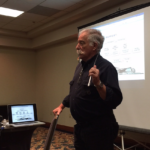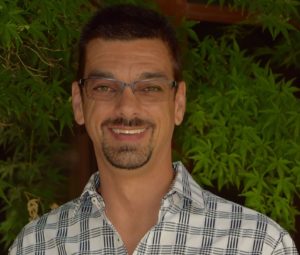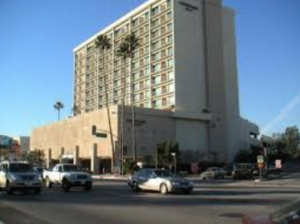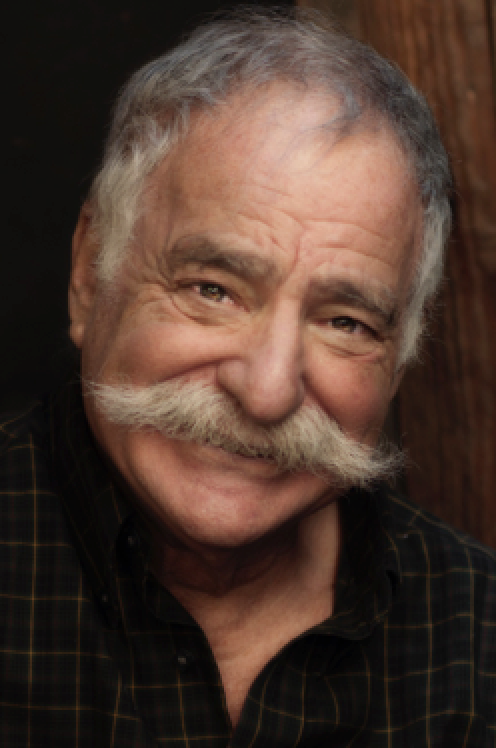Sherman Oaks, CA Event – Spring 2018
Using EMDR with Addictions: The DeTUR Protocol
(Desensitizing Triggers and Urge Reprocessing)
Presenter: AJ Popky, Ph.D.
Date: Friday and Saturday – Feb 9 & 10, 2018
Location: Courtyard by Marriott, Sherman Oaks, CA (Near Los Angeles)
Continuing Ed: 14 CEs and 14 EMDRIA Credits
Tuition: Early Bird $375.00 until Friday, Jan 26, 2018, after which $425.00
Registration
Intended Audience
This workshop is intended for mental health professionals who have completed an EMDRIA approved EMDR Therapist training in EMDR (both Part I and Part II) and the 10 hours of consultation.
The Speaker: AJ Popky, Ph.D.
 Arnold (AJ) Popky was instrumental in the founding of the EMDR Institute, is certified in Ericksonian Hypnosis and is a Master Practitioner of NLP. Dr. Popky specializes in PTSD and addiction. He developed the DeTUR Protocol, which he has presented in workshops internationally. His work can be found in “EMDR Solutions” by Robin Shapiro, PhD and in “Scripted Protocols” by Marilyn Luber, PhD. He also works at camps with our wounded warriors. He presently has a private practice in Sherman Oaks, CA and trains and consults to DoD therapists at Military Bases around the Globe along with several drug rehabilitation centers. Dr. Popky is a charter member of DIV. 1277 of the Marine Corps League. Previously, he spent 30 years in High Technology Silicon Valley electronics, and computer companies.
Arnold (AJ) Popky was instrumental in the founding of the EMDR Institute, is certified in Ericksonian Hypnosis and is a Master Practitioner of NLP. Dr. Popky specializes in PTSD and addiction. He developed the DeTUR Protocol, which he has presented in workshops internationally. His work can be found in “EMDR Solutions” by Robin Shapiro, PhD and in “Scripted Protocols” by Marilyn Luber, PhD. He also works at camps with our wounded warriors. He presently has a private practice in Sherman Oaks, CA and trains and consults to DoD therapists at Military Bases around the Globe along with several drug rehabilitation centers. Dr. Popky is a charter member of DIV. 1277 of the Marine Corps League. Previously, he spent 30 years in High Technology Silicon Valley electronics, and computer companies.
Training Assistant – Stephen Ammann, LMSW
 Stephen Ammann, LMSW, has been invited by A.J. to assist him in the recent trainings. Stephen is a Licensed Master of Social Work (LMSW) and a graduate of Northwest Nazarene University. Stephen provides individual, couple, and group counseling using an integrated approach. He is in private practice at Boise Counseling Center and specializes in sex addiction and pornography addiction. First and for most he is a trauma therapist. He is trained in Eye Movement Desensitization and Reprocessing (EMDR) and uses this effective process to help clients deal with trauma, addiction, and other concerns. He has also completed his training to become a Certified Sex Addiction Therapist (CSAT). He works extensively with USA ReBoot Resort, an organization that provides inpatient treatment to veterans across the United States.
Stephen Ammann, LMSW, has been invited by A.J. to assist him in the recent trainings. Stephen is a Licensed Master of Social Work (LMSW) and a graduate of Northwest Nazarene University. Stephen provides individual, couple, and group counseling using an integrated approach. He is in private practice at Boise Counseling Center and specializes in sex addiction and pornography addiction. First and for most he is a trauma therapist. He is trained in Eye Movement Desensitization and Reprocessing (EMDR) and uses this effective process to help clients deal with trauma, addiction, and other concerns. He has also completed his training to become a Certified Sex Addiction Therapist (CSAT). He works extensively with USA ReBoot Resort, an organization that provides inpatient treatment to veterans across the United States.
Learning Objectives
- Show how “Resource Accessing” empowers clients.
- Show how the DeTUR protocol interfaces with EMDR AIP model.
- Describe and demonstrate each step of the DeTUR protocol.
The DeTUR Model
Desensitizing Triggers and Urge Reprocessing (DeTUR) is a new approach based on the information processing model of EMDR and is used with EMDR as an integral part of a comprehensive plan for the treatment of addictions and dysfunctional behaviors. This approach consists of a comprehensive treatment plan including history, assessment, and diagnosis, detoxification (if necessary), medications, aligning internal and external support resources, group or family therapy, creating realistic and achievable treatment goals, individual therapy and relapse prevention.
Issues Treated
- Alcohol
- Nicotine
- Cocaine
- Crack
- Methamphetamine
- Marijuana
- Heroin
- Weight Problems
- Overeating
- Prescription Drugs
- Gambling
- Shoplifting
- Sex
- Domestic Violence
Target the Urges
By targeting the triggers that bring out the urge to use and then desensitizing these urges, the individual gains in ego strength and learns to replace the dysfunctional behavior with a more positive and functional lifestyle.
Addresses the Underlying Core Trauma
Individual therapy with EMDR assesses a client’s specific needs and enables “reprocessing” of the core, underlying issues contributing to the presenting problems.
Relapse Prevention
Once the core traumatic issues have been reprocessed and dealt with, the triggers are no longer able to generate the anxiety that is attached to the urge to use and relapse becomes less likely.
Components of the DeTUR protocol
- Resource Accessing
- Positive Goal
- Positive State
- Identify triggers
- Identify LOU (Level of Urge)
- Desensitize triggers & urges
- Install positive state
- Future template
- Closure
- Relapse prevention
- Reevaluation
Event Days and Times:
DAY 1: Friday, Feb 09, 2018
• 8:30-9:00 Registration, sign in & refreshments
• 9:00-10:30 Addiction & Trauma
• 10:30-10:45 Break
• 10:45-12:00 DeTURTM Protocol: video and live demonstration, medications, other addiction protocols
• 12:00-1:15 Lunch on your own
• 1:15-2:00 Video
• 2:00-2:15 Break
• 2:15-4:30 Practicum 1
• 4:30-5:00 Q & A
DAY 2: Saturday, Feb 10, 2018
• 8:30-9:00 Sign in & refreshments
• 9:00-10:30 Video
• 10:30-10:45 Break
• 10:45-12:00 Live demonstration
• 12:00-1:15 Lunch on your own
• 1:15-2:00 Interweaves
• 2:00-2:15 Break
• 2:15-4:30 Practicum 2
• 4:30-5:00 Q & A
Payment Information:
Early Bird $375.00 until Friday, Jan 26, 2018 after which $425.00
Cancellation/Refund: Your tuition is refundable less a processing fee of $75.00 up to 10 days prior to the workshop date. 9 days prior or less, no credit is given.
All grievances must be in writing to Jordan Shafer and will be replied to within 5 – 10 business days.
This workshop is held in facilities which are in compliance with the Americans Disabilities Act. Please notify Jordan Shafer if special accommodation is required.
Registration
Location

Courtyard by Mariott Sherman Oaks
15433 Ventura Boulevard
Sherman Oaks, CA 91403
Main Line (818) 981-5400
CE Information
14 Professional CE CREDITS & 14 EMDRIA CREDITS
(Attendance both days is required to receive CE credit. Partial credit is not given.)
EMDRIA Credit provided by CE-Classes.com
“Certificates are awarded online after completion of the workshop. Participants print their own certificate after registering at ce-classes.com, entering a keycode, and completing an evaluation form.”
“Licensed Professionals should contact their regulatory board to determine course approval.”
Ce-Classes.com is approved by:
- Ce-Classes.com is approved by the American Psychological Association to sponsor continuing education for psychologists. Ce-Classes.com maintains responsibility for this program and its content.
- Association of Social Work Boards (ASWB) CE-Classes.com, provider #1142, is approved as a provider for social work continuing education by the Association of Social Work Boards (ASWB) www.aswb.org, through the Approved Continuing Education (ACE) program. CE-Classes.com maintains responsibility for the program. ASWB Approval Period: 1/5/2017-1/5/2020. Social workers should contact their regulatory board to determine course approval.
- The Florida Board of Clinical Social Work, Marriage and Family Therapy and Mental Health Counseling Provider #852 BAP-Expires 3/31/2019
- California BBS: Ce-Classes.com is approved to provide continuing education by the following professional organizations: ASWB and APA. The California Board of Behavioral Sciences, BBS, recognizes relevant course work/training that has been approved by these nationally recognized certifying bodies to satisfy renewal requirements.
- The California Association of Alcoholism and Drug Abuse Counselors (CAADAC) Provider Number OS-12-174-1116 Expires 11-2018
- The Texas Board of Social Work Examiners, Continuing Education Provider – 5674 expires 4/30/2019.
- The Texas Board of Professional Counselors, Continuing Education Provider – 1622 expires 2/28/2019.
- Massachusetts Authorization Number: (TBD)
- Ohio Counselor, Social Worker and Marriage and Family Therapist Board – Provider # RCST031201 Expires 5/31/2019
- The Florida Board of Nursing (CE Provider #: 50-4896) Expires 10/31/2018 Do not send certificates to the Florida Board of Nursing. You must keep this certificate for 4 years.
- The California Board of Registered Nursing. CEP 15647 Expires 11/30/2018
- New York Social Work Board NYSED Provider #120
- This course is NOT APPROVED for NBCC
This workshop is held in facilities in accordance with the Americans with Disabilities Act. Please notify hotel or Jordan Shafer (972) 342-2448 if special accommodations are required
Contact Jordan (Event Organizer)


